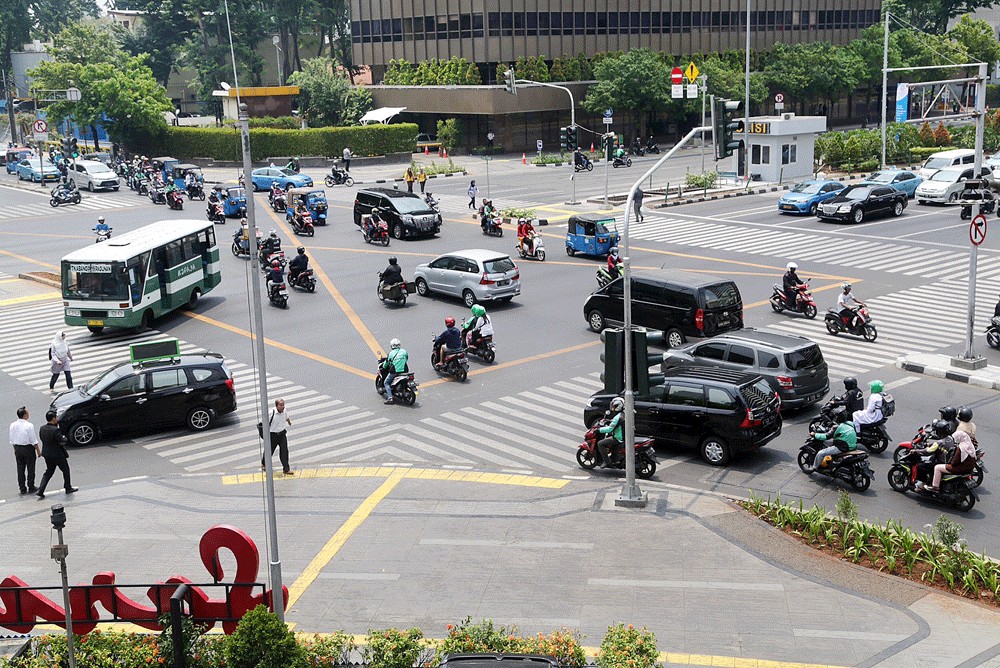Popular Reads
Top Results
Can't find what you're looking for?
View all search resultsPopular Reads
Top Results
Can't find what you're looking for?
View all search resultsReading the wrong gauge
Change text size
Gift Premium Articles
to Anyone
L
ike previous traffic law enforcement campaigns, this year’s nationwide Operation Zebra, which took place from Oct. 30 to Nov. 11, still faced the same old predicament — motorists’ lawlessness.
While it may take a few more weeks for the police to review the data from across the country, let us take a look at the key findings in the capital.
In Jakarta, home to some 13 million motorcycles and 4 million cars, the police reported that they ticketed 110,643 motorists for various violations. Sr. Comr. Budiyanto, the chief of the Jakarta Police’ subdirectorate for education and law enforcement, said the number was 20 percent lower than the 125,984 issued last year. The number of driver’s licenses they confiscated also dropped by almost 25 percent to 43,015 from 56,795.
The most common violations were illegal parking, lack of vehicle documents, overloading and not wearing seat belts. Police targeted motorists who were using their mobile phones while driving, driving against the traffic, riding motorbikes with more than one passenger, lacking licenses and vehicle registry documents, failure to wear seat belts or helmets, driving under the influence of alcohol or drugs and exceeding the speed limit.
The operation’s goal is to educate people on road safety and lowering road accident rates. Intensive traffic law enforcement operations are also held during major holidays, on election days and when Indonesia hosts international events featuring world leaders.
Yet, despite the campaigns and improvements in road safety as the authorities claim, road accident rates have remained high over the past three years. According to Statistics Indonesia (BPS), road accidents reached 95,900 cases in 2014, increased to 98,970 in 2015 and further climbed to 106,130 in 2016. Accidents reportedly dropped to 103,000 last year. The death toll from road accidents is still high by any standard. In 2014, 28,297 people were killed on the country’s roads. The figure dropped to 26,495 in 2015 and decreased slightly to 26, 185 in 2016. Last year, it dropped to about 25,000.
The figures suggests that the approach to road safety needs to be reevaluated given the slight decrease in fatalities. Corrupt practices at police stations issuing driver’s licenses must end. Fines for traffic offenses should be increased and unroadworthy vehicles impounded. Driving schools should improve their level of instruction. Safety measures on highways, such as rumble strips, speed limits and barriers need to be improved.
Traffic chaos in Jakarta and other cities like Bandung, Bekasi, Yogyakarta, Medan and Denpasar remain horrendous despite countless traffic operations. Motorists running red lights, speeding motorcycles with deafening modified exhausts and reckless driving are common, with the culprits going largely unpunished.
Statistics that police announce at the end of every operation look impressive, but when the operations end, so does road discipline. A successful operation should result in more orderly traffic and better safety records rather than how many tickets the police issued.










